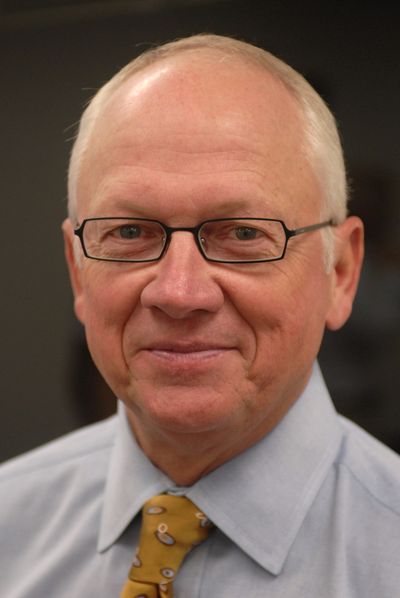Nosbaum promoting energy innovation
Itron CEO will give keynote speech at D.C. forum

When LeRoy Nosbaum is asked if the Obama administration stimulus bill, with $4.5 billion for “smart” energy grid improvements, will modernize our frail power system, he wastes no time being polite.
“Absolutely not,” he says.
Making the energy system more efficient and more reliable is a long-term project, something $4.5 billion will only start to do, said Nosbaum, the CEO and chairman of Spokane utility-technology firm Itron Inc.
“We’re talking about dealing with something that will take $10 billion to $20 billion or more to change, and tens of years to fix,” he said.
Nosbaum’s 40 years of working with power utilities, both in the United States and globally, have made him an influential industry spokesman.
Today and Tuesday, Nosbaum will be a featured panel member at a forum in Washington, D.C., focusing on the urgency of improving the U.S. energy system.
Nosbaum will be the event’s keynote speaker Tuesday, giving him the chance to conclude two days of discussion on how the power industry has to change and the risks of doing nothing. Others on the panel are T. Boone Pickens of BP Capital Management, Charles Phillips Jr. of Oracle, and Dan Reicher of Google. The event is sponsored by energy publication EnergyBiz.
It’s no surprise that tech firms Google, Oracle and others are part of the equation. The heart of the smart-grid concept is the development of two-way energy-information systems. The smart grid will collect information at all points along the power network so that consumers and corporate customers can choose to modify energy choices, and so the utilities can quickly deliver system fixes when distribution problems occur.
Itron, as a metering tech provider, won’t be directly involved in smart-grid development, said Nosbaum.
Where Itron will shoulder the load is in its continuing development of smart or advanced meters – two-way devices at the end-user location that collect, analyze and report key data about consumption back to the utility.
The current power grid fails to provide real-time information, and Nosbaum said the analogy is that of driving a vehicle without a gas gauge telling you how much fuel you’ve consumed. It won’t be long, he noted, before technology will give you the chance to raise and lower your home thermostat, or shut off appliances, directly from your cell phone.
“Some of what I’m going to say (in the keynote) is preaching to the choir,” he said. “But it’s also another chance to really look at the need for a coherent national energy policy.”
The country has muddled along, but Nosbaum and many others say further delays in revising the dated power system will have dire effects. “We’re out of time, we have to do something. If we don’t get to that coordinated policy, our grandchildren are doomed to the reality of an energy infrastructure that will be woefully inadequate.”